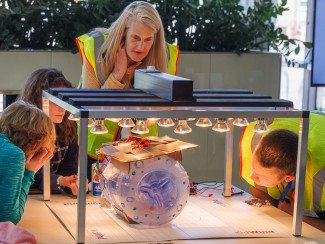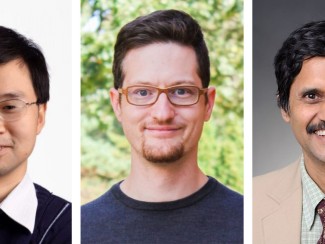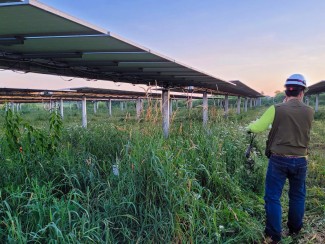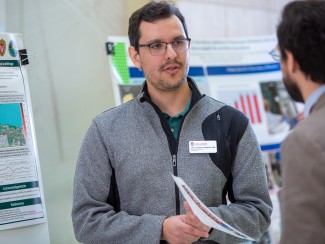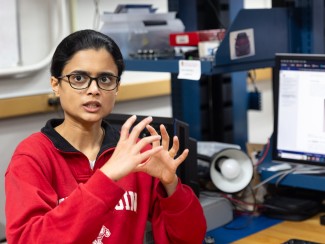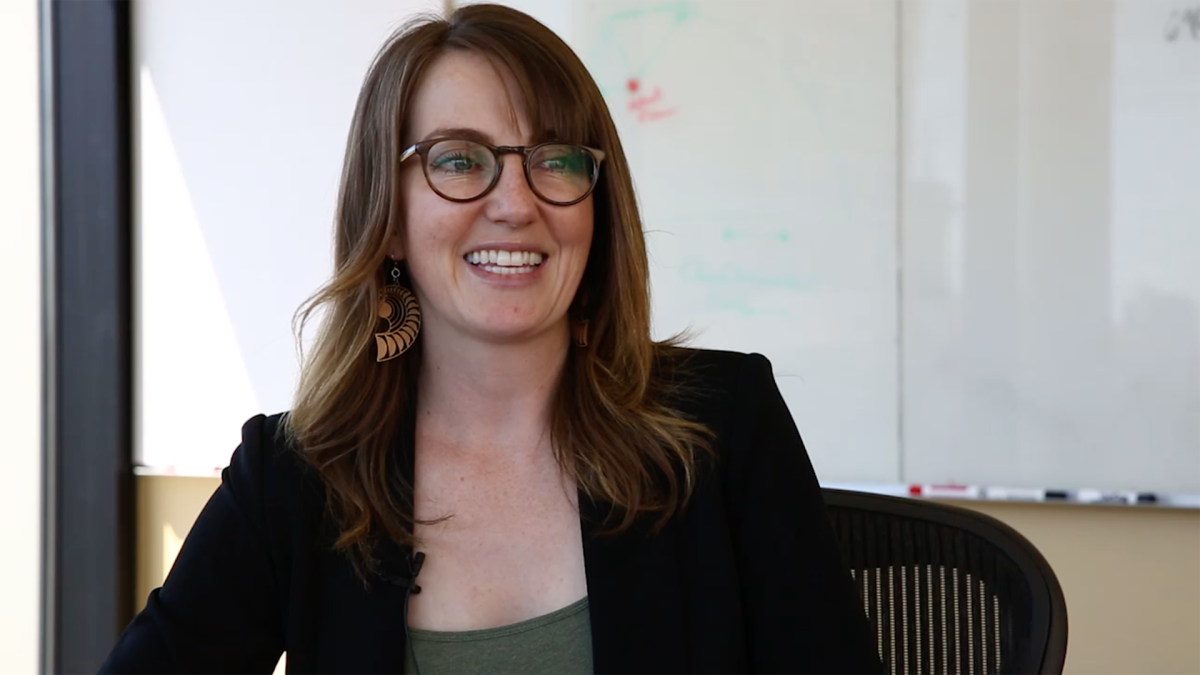
Solutions to energy challenges are being developed everyday on the University of Wisconsin–Madison campus. But those solutions don’t just come from the university’s nationally recognized researchers, they also spring from its entrepreneurial students, many of whom work together to create much-needed innovations in energy technology and environmental sustainability.
Since 2012, the Wisconsin Energy Institute’s (WEI) Wisconsin Energy and Sustainability Challenge (WESC) has sought to reward undergraduate students who develop these innovations. The WESC Challenge consists of two different prizes – the Dvorak Energy Innovation Prize, which recognizes excellence in developing a technology applicable to energy, and the Global Stewards Sustainability Prize, which recognizes ideas with an environmental or sustainability focus.
The competition pushes students to develop concrete innovations, including complete technical and business plans, that have the potential to transform the way we use energy and natural resources. But the competitions have an educational component as well, and are often the first time students encounter the challenges of making a good idea a reality.
On the five-year anniversary of the WESC prizes, WEI reconnected with past winners to find out where their projects are now, as well as to learn how the WESC experience shaped their undergraduate experience and early careers.
C-Motive, 2012 winner of the Global Stewards Sustainability Prize
Justin Reed and Dan Ludois met as undergraduates at the 2007 Engineering Expo and soon after began working on side projects in their free time, or what they liked to call “weapons of mass distraction.” One of those projects – founded on the idea of using electrostatic energy to power motors – became a 2012 WESC winner and later, a full-fledged UW spinoff company called C-Motive.
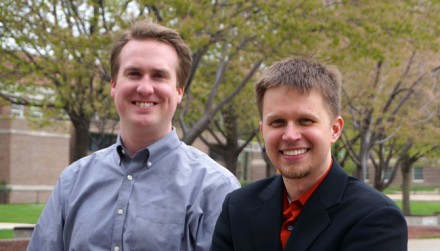
Though researchers have long toyed with the idea of using electrostatic energy to power motors, most have abandoned the idea for technical reasons. Ludois and Reed, however, were intrigued by those technical challenges and decided to try their hand at devising an engine model that uses static (instead of electromagnetic) force. They ultimately succeeded, creating a new engine model that has the potential to change how engineers design the machines that run our lives.
According to their company website, “C-Motive is the first company to demonstrate that electrical charges can be stored in high enough densities to produce levels of torque that are practical and useful across a wide range of applications.” The C-Motive model can also be made from a variety of materials, some of them recyclable.
Ludois, who is now a UW–Madison assistant professor of electrical and computer engineering, continues to research the theoretical aspects of this new technology.
“WESC definitely helped with the process of learning how to pitch to investors, companies, and customers,” says Reed. “Going through the business planning process helps you develop an overall plan for how you are going to take this technology and make it something that can sell. The prize winnings were our earliest seed money. It literally got the company started.”
MIGHTi, 2014 winner of the Global Stewards Sustainability Prize
Valerie Stull and Rachel Bergmans were strangers before uniting to win first place in the Global Stewards Sustainability Prize at WESC in 2014 with their project, MIGHTi (the Mission to Improve Global Health Through Insects). After being introduced by Professor Chris Kucharik, the pair bonded over a shared interest in a United Nations report about entomophagy, the practice of eating insects. This interest led to MIGHTi, their idea to provide women in impoverished regions of southern Africa with farming kits for rearing edible insects and then selling insect protein powder in local markets.
“We wanted an idea that married international development and progress with health and agriculture,” says Stull. “Insects were a perfect way to do this because, in fact, two billion people on the planet consume insects on a regular basis — 80 percent of the world’s countries.”
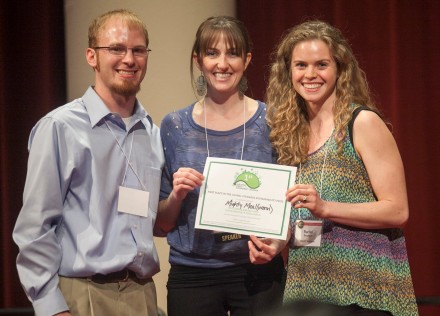
After the WESC win, the duo went on to earn a total of $125,000 from the National Agriculture Innovation prize and Climate Quest Competition. They used those earnings to develop a prototype with a California company called Tiny Farms and then went to Zambia to investigate whether the product was feasible and of interest.
Today, MIGHTi is primarily research-focused. Stull is completing a PhD at UW–Madison’s Nelson Institute for Environmental Studies and Bergmans recently graduated from UW–Madison with a PhD in epidemiology. During the course of their research, Stull moved to Zambia for a year to investigate MIGHTi’s social implications while Bergmans stayed home to research the health impacts of feeding insects to malnourished mice. Their plan is to restructure MIGHTi once their research is published this fall.
“WESC gave us the confidence to go for it because we thought it was a good idea but we had no affirmation from anyone else or support,” says Stull. “Even my advisor was skeptical in the beginning. But we got really good feedback from the judges and the students in the competition and the money was an incentive to start doing more things. This project really is emblematic of the Wisconsin Idea because it’s not research for research’s sake, it’s research to move a concept forward in the world, into practice.”
Serving Earth LLC, 2015 winner of the Global Stewards Sustainability Prize
Jennifer Sharpe was a junior when she won first place in the 2015 Global Stewards Sustainability Prize for Serving Earth LLC. A class on entrepreneurship first inspired her to start developing Serving Earth, a line of reusable to-go boxes made of recycled material that could be used in dining halls and restaurants. When she won $3,000 from the Madworks Seed Accelerator to develop a Serving Earth prototype, she recruited students to help her with market research and prepared for the WESC competition.
“I wasn’t a scientist, I wasn’t an engineer, I couldn’t elaborate on the physics of water pressure or revolutionize some scientific industry – I was just this girl with what some people called Tupperware, just trying to make it,” Sharpe said. “The competition gave me a whole world of confidence that I still hold on to today.”
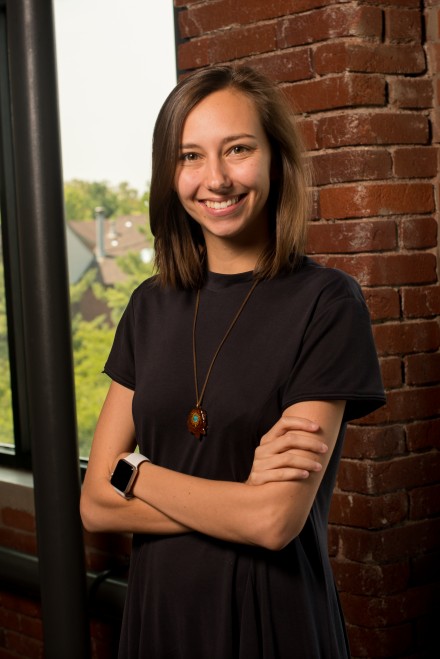
Though Sharpe did not move forward with Serving Earth, she continued her work as an entrepreneur. She next joined a student project called Metrecycle, an electronic waste collection and disassembly service for developing areas. Metrecyle won second place in the Transcend Madison competition and won UW–Madison’s Hult Prize. Later, Sharpe joined the highly competitive Venture for America entrepreneurial fellowship program.
A 2016 graduate of UW–Madison, Sharpe currently serves as program manager at Ascender, an entrepreneurial hub located in Pittsburgh, where she creates events that nurture creativity and development within the entrepreneurial community.
“Being a WESC competitor created a learning opportunity for me to take an idea and turn it into a proposal, to get out in front of people,” says Sharpe. “It really exposed me to the adult world. I think you can make your education work for you, you can expose yourself to whatever you like. The job of your dreams is out there if you work hard enough. Competing in WESC really gave me exposure to this kind of career and life that I didn’t know was out there.”

 WESC Competition Timeline
WESC Competition Timeline